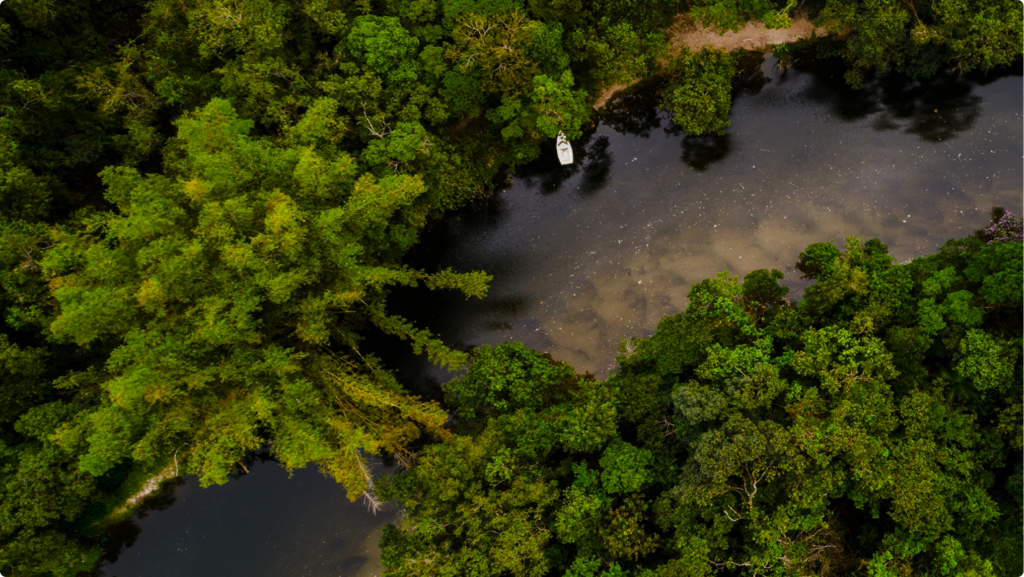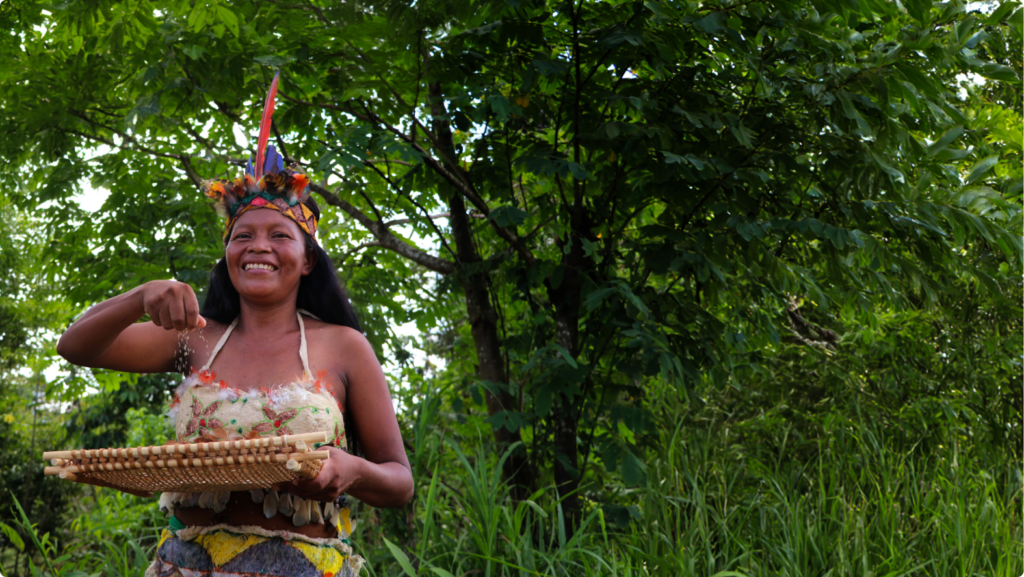The Amazon is the largest tropical forest in the world, spanning over 1.7 billion acres across nine countries, covering 40% of South America.
It boasts an unparalleled diversity of wildlife and plants, including nearly 400 billion individual trees. It is also home to 45 million people. Protecting the Amazon is a global priority for the future of our planet.
Rainforest Foundation US has been working to protect the Amazon rainforest in partnership with Indigenous peoples since our founding in 1988.
Our journey began in Brazil with the Kayapo people, and today, our work in the Amazon extends across four Amazonian countries, supporting nearly 160 communities.

Beyond its stunning beauty, the Amazon is crucial for maintaining global ecological balance and keeping our planet healthy.
As one of the Earth’s primary carbon sinks, the Amazon absorbs vast amounts of carbon dioxide (100 million metric tonnes annually). It plays a vital role in regulating the climate and mitigating the effects of climate change.
The Amazon basin is home to the world’s largest river system and significantly influences the global water cycle and rainfall patterns both in South America and worldwide. It is one of the most biodiverse places on Earth, and it directly sustains the lives of millions of species and people.
The fate of the Amazon rainforest affects us all!

The Amazon is home to approximately 1.5 million Indigenous people from 385 different ethnic groups.
Contrary to the common perception that the Amazon rainforest is an intact wilderness, Indigenous peoples have shaped and managed it for thousands of years. These communities hold about 29% of the rainforest (an area larger than Mexico and France combined), yet many still lack legal recognition of their land.
Science has demonstrated that forests managed by Indigenous peoples in the Amazon are healthier and sequester more carbon than forests outside their territories, which have actually become sources of carbon due to extensive deforestation and degradation. Despite their crucial role in environmental stewardship, Indigenous people continue to face harassment, criminalization, and even murder for their efforts to protect their lands.
We’ve already lost approximately 15% of the Amazon rainforest.
Estimates say that if deforestation reaches 20-25% of the basin, this could trigger a large-scale dieback of the forest, leading to catastrophic consequences for rainfall patterns across South America and the global climate. The biggest threats to the Amazon include…

Every minute, the Amazon loses a forest area roughly the size of four soccer fields.
In the past 22 years, this loss accounts for over 168.5 million acres of forests. The primary driver of Amazon deforestation is agricultural expansion, which is responsible for a devastating 84% of this destruction.
Extreme weather events driven by climate change are increasingly threatening the Amazon.
Mining is present in all Amazon countries, impacting 17% of the region.
Oil blocks cover 9.4% of the Amazon (~198 million acres). These activities lead to deforestation, habitat destruction, and pollution, which endanger wildlife and Indigenous communities, and exacerbate climate change.